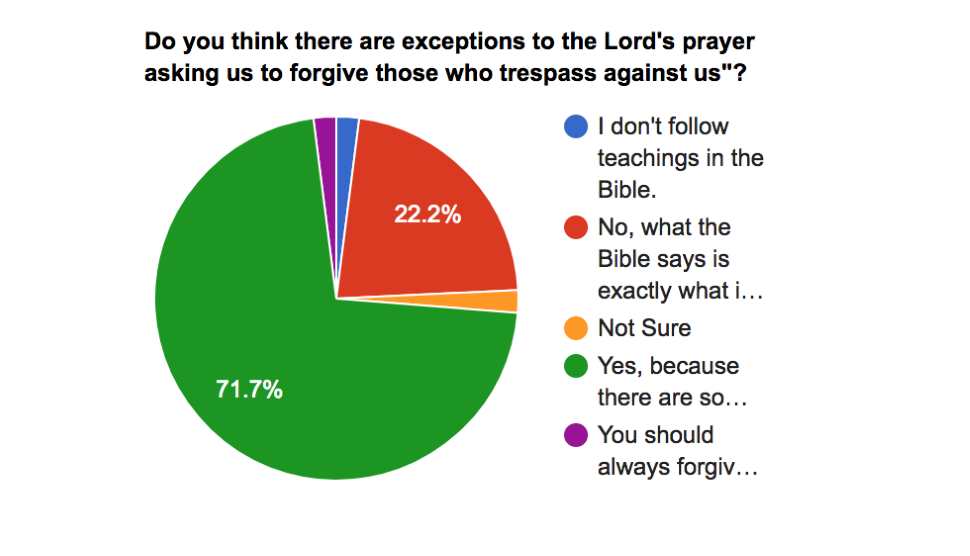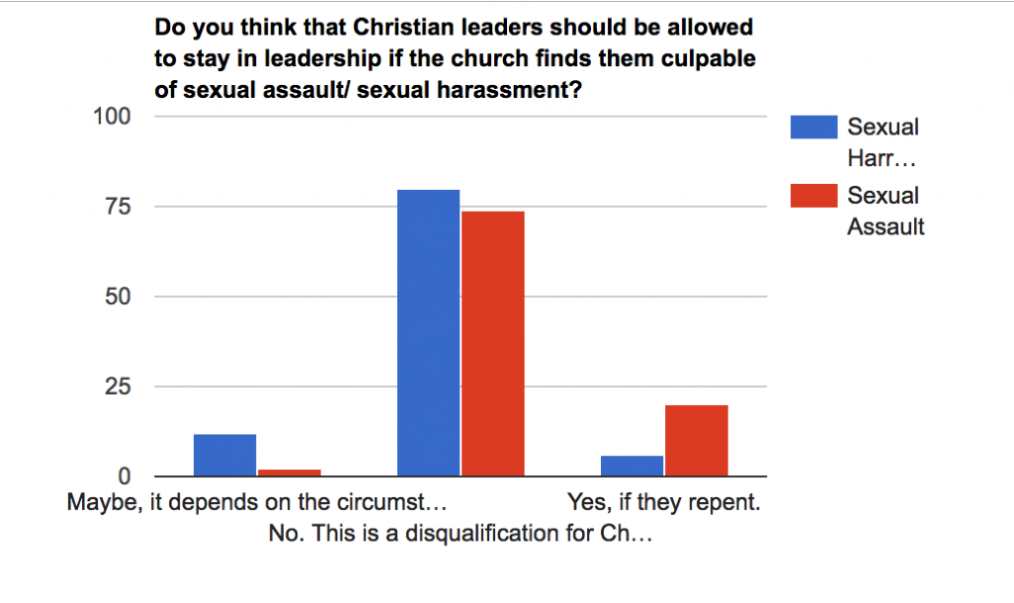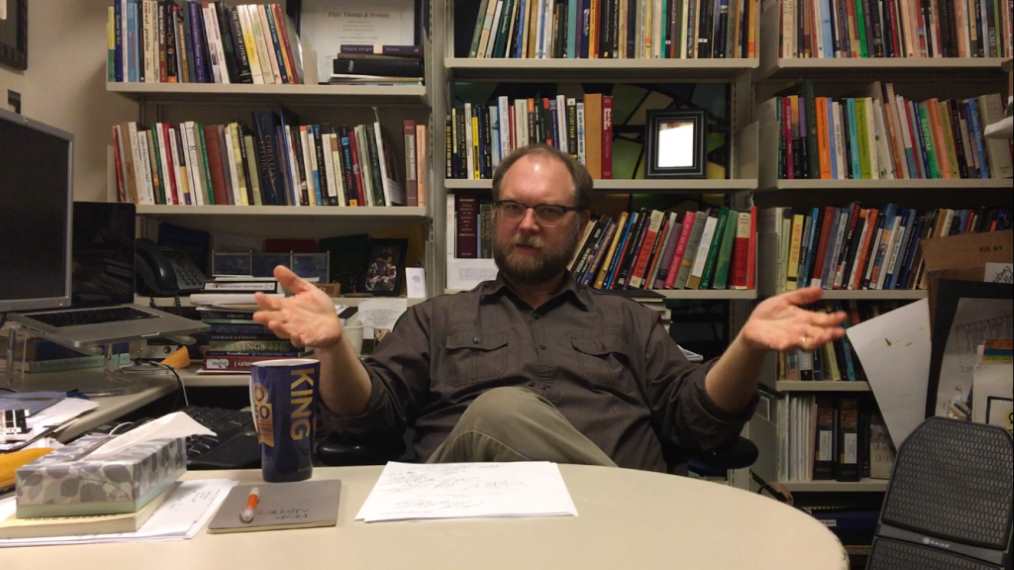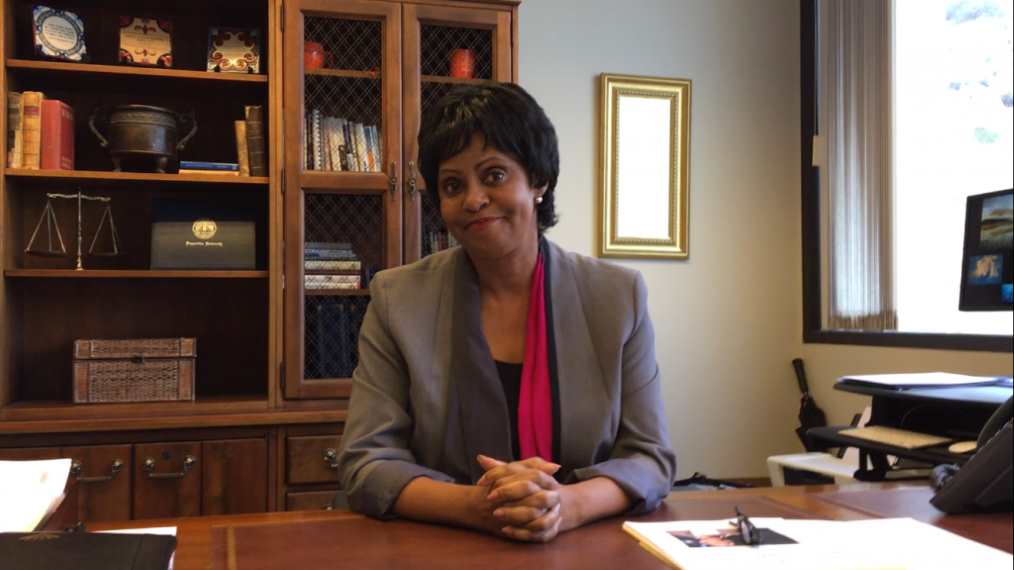|
To Forgive or Not to Forgive? Christians Struggle with Sexual Assault Allegations
By Madison Nichols
The Lord’s prayer asks Christians to forgive those who trespass against them. Though, when a congregation applauds for a pastor who confesses to sexually assaulting a teen in his youth ministry, many question whether there are limits to Christian forgiveness. Highpoint Church Teaching Pastor Andy Savage of Memphis told his congregation during a service Jan. 7 that he was involved in what he called a “sexual incident” with the then 17-year-old and member of Savage’s youth group Jules Woodson 20 years ago. In a personal interview March 18, Woodson said she wants the church to recognize that sexual abuse within the church is a real issue. “The reason I am coming forward is to gain healing and closure for myself because this is something I have carried around for 20 years,” Woodson said. “No. 2, I want other victims to know that they are not alone. And No. 3, I want to create change.” Savage’s public confession was in response to a blog post on Wartburg Watch Dog that Woodson posted Jan. 5, which exploded on social media. “I was, and remain, very remorseful for the incident and deeply regret the pain I caused her and her family,” Savage said in a live broadcast that aired on the Highpoint Church’s Facebook page, which can now only be seen on the New York Times. “As well as the pain I caused the church and God’s kingdom.” Savage’s church gave him a standing ovation for his confession. But the applause was heard around the world, leading to controversy that forced Savage to resign from his teaching ministry at Highpoint Church March 20. Shortly thereafter, the Chicago Tribune reported allegations of sexual misconduct against megachurch pastor Bill Hybel, founder of Chicago’s Willow Creek Community Church and a former spiritual adviser to Bill Clinton. Hybel, who has denied all charges, resigned April 11, according to the Washington Post. Willow Creek, one of the largest evangelical Christian churches in the nation, responded to Hybel’s resignation with similar opposition. He too received a standing ovation. As Christians grapple with the #MeToo movement, these stories show the challenges churches face in dealing with sexual assault and harassment allegations. Christian calls for forgiveness sometimes conflict with Christian calls for accountability, justice and protection of the survivors. The lack of support Woodson received from the church raises questions about how a church should respond to allegations and what it can do to combat incidents from occurring. Pepperdine faculty and students said they continue to wrestle with these questions. Students hesitant to forgive In a poll of 50 students, 71 percent said there are exceptions to the Lord’s prayer asking people “to forgive those who trespass against us.” 22 percent said there are no exceptions. The poll found that 80 percent of students surveyed said sexual harassment is a disqualification for Christian leadership but only 74 percent thought sexual assault was. Students were more willing to allow leaders to repent of assault than harassment. This may indicate that students are confused about the differences between harassment and assault. Tanya Hart, history professor and director of the Women’s Studies Program, said sexual harassment is verbally painful but sexual assault is much more damaging and serious. “I’ve been harassed my entire life but it’s not like having your body touched and violated in an assault,” Hart said. LaShonda Coleman, Pepperdine University Title IX coordinator, did not respond to an interview request. Balancing forgiveness and accountability The applause for Savage’s confession created controversy, as many Christians struggle with where they stand. Pepperdine Religion Professor David Lemley, who specializes in ministry, said the Memphis megachurch’s response to Savage’s confession shows the level of acceptance and forgiveness that lies within the Christian church. “It was sort of a celebration of his honesty, his willingness to confess,” Lemley said. “A view of it was this is a witness to the grace of God.” But Lemley said the church needs to acknowledge that sexual abuse is an issue within the church that needs to be dealt with. “If there is going to be a sense of ‘our community embraces [the perpetrator],’ then it needs to be ‘our community embraces the process of making this right,'” Lemley said. It was a strange thing for the Memphis megachurch to react so affirmingly to Savage’s confession but that it showed Christian communities’ strong commitment to how they treat people, Lemley said. Whereas Hollywood is currently blacklisting sexual predators, Lemley said the church acts the way they believe God would in these situations. “The church is the result of God’s loving mission in the world, you know,” Lemley said. “The church is the result of God’s spirit and bringing people together to do the work that God has for them to do.” Hart stressed how harmful sexual assault and sexual harassment can be, and how dangerous it can be when it is swept under the rug or not talked about. Hart said the Bible does not condone these actions and the Bible is not misogynistic in any way, shape or form. These are actions of human beings. “The problem isn’t with God,” Hart said. “The problem isn’t with Jesus. The problem is with human beings. We need to look at ourselves.” However, she agreed that the church’s applause was acknowledging Savage’s repentance and could provide an example for others to come forward. “If one person repents, who has been sexually assaulting his wife, girlfriend, somebody else, a man, whatever, I mean, I think that’s a great thing,” Hart said. “I think God is going to be rejoicing. Why can’t we rejoice with that person?” Woodson said people need to acknowledge that sexual abuse is a huge problem within the church, that sexual abuse is a crime and the church is accountable to report incidents to law enforcement. Furthermore, she said it is important to listen to the stories of survivors and utilize outside resources to become more educated on the problem. “In the Bible, it talks about that we are supposed to be following the law of the land, essentially, and there are rules in place for a reason,” Woodson said. “The church, the parishioners, the pastors – nobody is above the law.” Only 28 states include clergy as mandated reporters of child abuse and neglect, according to a 2008 Child Welfare Information Gateway study. Woodson adds that in Texas, where her case took place, clergy are mandated reporters. Sophomore Carolyn Van Den Hoogen said her church had experience with a female church leader who was accused of sexual harassment. The church ruled she was not guilty and the female continued working with youth groups. Van Den Hoogen said she believes the accuser had alternative motives but the incident still shook her faith. “It showed me that we need to look at both sides of the issue – that some people may claim sexual assault because it is a cry for help and they want attention,” Van Den Hoogen said. She believes those found guilty should be removed from leadership but not from the church. “We shouldn’t completely turn our backs to [the accused],” Van Den Hoogen said. “They should still be involved in the church.” Maintaining faith in the church Woodson said she felt her entire church congregation failed her, leaving her with a rocky relationship with her church, but she continued her faith in God. Lemley said going back to church would be hard for victims of sexual abuse, especially when the perpetrator was a church leader. However, he said community is an important part of one’s relationship with God. “If you catch the idea that God is present and loving and can do transforming work in your life, you’re going to be drawn into community,” Lemley said. “You’re going to be drawn into a community of people who want to be part of that change for each other and for the world that they live in.” Sophomore Claire Duval said she does not think her faith would be the same if she were to discover her pastor had sexually assaulted someone. “There is that old saying ‘practice what you preach,’” Duval said. “If they’re not really practicing what they are preaching, why should I listen to what they are saying?” Roman Catholic abuse scandal The Roman Catholic church dealt with similar questions of forgiveness versus accountability as it covered up the actions of numerous pedophile priests, which the Boston Globe first uncovered in 2002. Out of the 1,671 credible allegations, church leaders only removed six 6 percent of abusers from the clergy, according to United States Conference of Catholic Bishops’ formal report, The Nature and Scope of the Problem of Sexual Abuse of Minors by Catholic Priests and Deacons in the United States. Only three percent served prison sentences. Debate about whether or not to remove a church official convicted or accused of sexual assault sparks major controversy and division within the church. After boys from his Roman Catholic church reported that their priest had sexually harassed them, sophomore John Peterson said his trust in his church was put into question. “My faith was put in a difficult situation,” Peterson said. “I was raised to believe something, and the very people that told me that lied to me and cheated me when they did this terrible act.” Peterson does not think his church handled the situation properly. He said their priest stayed for multiple years until complaints began to pile up. The church eventually decided to move him. Catholics cite the scandal, the cover-up and the ongoing payouts to survivors as the biggest issue facing the church, according to Pew research. Priest sexual abuse scandals costs have cost the church about $4 billion total, according to a 2015 National Catholic Reporter article. Like many Christian churches, Roman Catholic numbers are declining. The church lost 3 million members between 2007 and 2014, dropping to 51 million Americans, according to a Pew Research Center March 2015 report. “Nearly one-third of American adults (31.7 percent) say they were raised Catholic,” the report said. “Among that group, fully 41 percent no longer identify with Catholicism.” How can Christians solve this problem? Hart said she believes human sin is at the root of the problem and that exposing that sin and the power dynamics that are involved can help victims come forward. “We need to quit rejecting what people say and listen,” Hart said. “And accept what they are saying is true.” Hart also believes there needs to be better educational efforts directed at men. “We don’t turn the lens on men and teach them how to deal with their sexuality, how to deal with their emotions, how to deal with what’s going on with their brains from childhood,” Hart said. Edna Powell, Pepperdine University’s previous Title IX director for employees and current Chief Business Officer, said there needs to be more exposure to these issues at a younger age so people can protect themselves. “But the things that are happening in the world and happening to people and hurting people, we need to talk about it and educate very early on in schools, in church,” Powell said. “The church needs to be part of this.” Lemley said he believed that Christian leaders should be held accountable for their actions. “We need to create greater accountability and support for our own community so we don’t participate in this,” Lemley said. “We need to create more transparency so we don’t fall victim to silence or blindness in this.” Woodson encouraged students to utilize GRACE, Godly Response to Abuse in the Christian Environment, as a resource. Basyle “Boz” Tchividjian developed the nonprofit GRACE in 2006. The organization stresses the importance of educating churches and other Christian organizations to care for those impacted by abuse in an appropriate matter. “What I love about GRACE is that they are not just a crisis management,” Woodson said. “They want to train Christians and leaders, and pastors in the church to, recognize signs of abuse, recognize how abuse affects people.” The GRACE website promotes church responsibility, accountability and compassion for abuse survivors. Rev. Serene Jones, president of the Union Theological Seminary in New York City, spoke with NPR’s Michael Marin about the Memphis church’s response to the sexual abuse incident. “I think the church has not only sided with the predators, but oftentimes the theology that’s taught in churches promotes the view that women should be submissive to men, meaning also that women, regardless of their age or their place, should be submissive to men’s desires,” Jones told NPR. “And this all too often leads to abuse. And it’s embedded in the theology.” Lemley said scripture is used to justify and rationalize human acts. “I think that anybody who is a serious student of scripture has to recognize that there are passages that are really troubling in describing social structures and describing gender injustice,” Lemley said. “If I’m really a disciple of Jesus, I would not ever do those things.” Woodson and Savage Today Woodson said she grappled a lot with her decision to email Savage as she did Dec. 1, an email she said he has not responded to. But now, Woodson believes the rest of her story is not in her hands. “God, this is in your hands,” Woodson said. “You know my heart. I am struggling. I just ask for guidance, direction and wisdom.” Woodson said it is overwhelming to have her story in the public eye but she hopes it will inspire others to come forward. “It’s not just about me,” Woodson said. “It’s about how many times this is happening all over the world, in every church, and everybody who has been victimized and everybody who has been treated wrongly.” The Montgomery County Precinct 3 Constables Office released an online statement on Jan. 8 that Savage will face no criminal charges because the situation is beyond the statute of limitations. Savage explained his resignation from ministry in a statement NBC published March 20. “When Jules cried out for justice, I carelessly turned the topic to my own story of moral change, as if getting my own life in order should help to make up for what she went through and continues to go through,” Savage said in the NBC article. “I agree with Jules that, of all places, we as the church should be getting this right.” Woodson said that although Savage’s leave is a sign of progression, it is certainly not the end of the journey. “This is a wake up call for everyone,” Woodson wrote in a formal statement she sent to the Pepperdine Graphic. “There is a systematic problem within the institution of the church that props people up in places of power and gives them immunity based on cheap grace and a call forgiveness. This has bred a culture ripe for abuse and cover-up. Repentance, accountability and justice should not be contrived.”
|
.
Any original material on these pages is copyright © BishopAccountability.org 2004. Reproduce freely with attribution.





